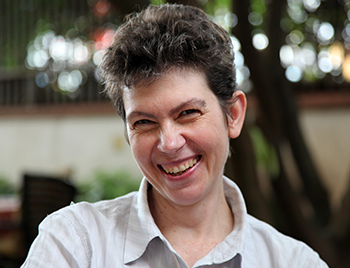Latest News Archive
Please select Category, Year, and then Month to display items
26 November 2020
|
Story Leonie Bolleurs
![]()
Mind Matters is a first for the UFS. It is a mental-health publication for students aimed at highlighting what matters most when it comes to your mind, life, and well-being. Some sections share how individuals in the top echelons of the UFS take care of their minds. Other sections focus on how to support your grey matter (i.e. your brain) and, consequently, improve your general functioning. Some parts discuss matters related to careers, well-being, finance, and self-development. We also provide news and resources that might matter to you.
Whatever your fancy, Mind Matters focuses primarily on why the health of your mind matters. Our minds and brains are the most powerful intelligence or apparatuses on the planet. A power like this needs to be wielded wisely, otherwise we may suffer much from our own neglect of our mental health. It’s not always easy, but it is important!
Mind Matters was possible due to the cumulative contributions, inputs, and work of numerous UFS professionals, especially within
Student Affairs. We are grateful and proud of each person involved. We endeavour to honour these efforts by continually improving and developing Mind Matters. Your feedback and voices are most welcome and will continue to inform what we do next.
UN-recognised scholar awarded the prestigious TRI Annual PhD Award
2015-11-09

Dr Anneli Botha, winner of TRI Award for Best Doctoral Thesis.
Photo: Supplied
|
Two years after enrolling as a PhD candidate in the University of the Free State’s (UFS) Department of Political Studies and Governance, Dr Anneli Botha was awarded the annual Terrorism Research Initiative (TRI) Award for the 'Best Doctoral Thesis on Terrorism and Counter-Terrorism' (2014).
The TRI PhD award is a prestigious international honour, while terrorism as a scholarly venture remains a concentrated field. Dr Botha, one of the few women in this niche field, has proved to be an excellent asset. Her winning of the prestigious award was announced in its October 2015 issue of Perspectives on Terrorism (PT), a globally-circulated online journal, co-published by the European-based Terrorism Research Initiative and the America-based Center for Terrorism and Security Studies.
Based on the merit and relevance of her outstanding research, the United Nations Development Programme has appointed Dr Botha as a Consultant on Radicalisation. In addition, her PhD is to be published as a book in the United States of America early in 2016. She was appointed as a Research Associate at the University of the Free State at the beginning of this year.
An award-winning search for answers
Her thesis, titled “Radicalisation to Terrorism in Kenya and Uganda: a Political Socialisation Perspective”, tackled East African militancy, from an individualised perspective. Researchers in the past have neglected assessing details of the rebels’ childhoods. Dr Botha’s interviewed about 285 militants and their families. These individuals declared themselves openly as members of al-Shabaab and the Mombasa Republican Council (MRC) in Kenya, and the Allied Democratic Forces (ADF) and the Lord’s Resistance Army (LRA) in Uganda, at the time of the interviews.
Her doctoral dissertation provides significant information about factors that should be considered in the quest to counter and prevent terrorism. Her research shows conclusively that political socialisation begins with the family, and expands through peers, school, media, and earlier political experiences, culminating in the terrorist group.
Outstanding piece of scholarship
Dr Alex Schmid, who is the editor of PT, TRI Award Jury chairman, and one of the most respected experts of terrorism, described Dr Botha’s research as an “outstanding piece of scholarship.”
Dr Botha attributed her success to her supervisors - Professors Theo Neethling and Hussein Solomon - as well as to the people in Kenya and Uganda.